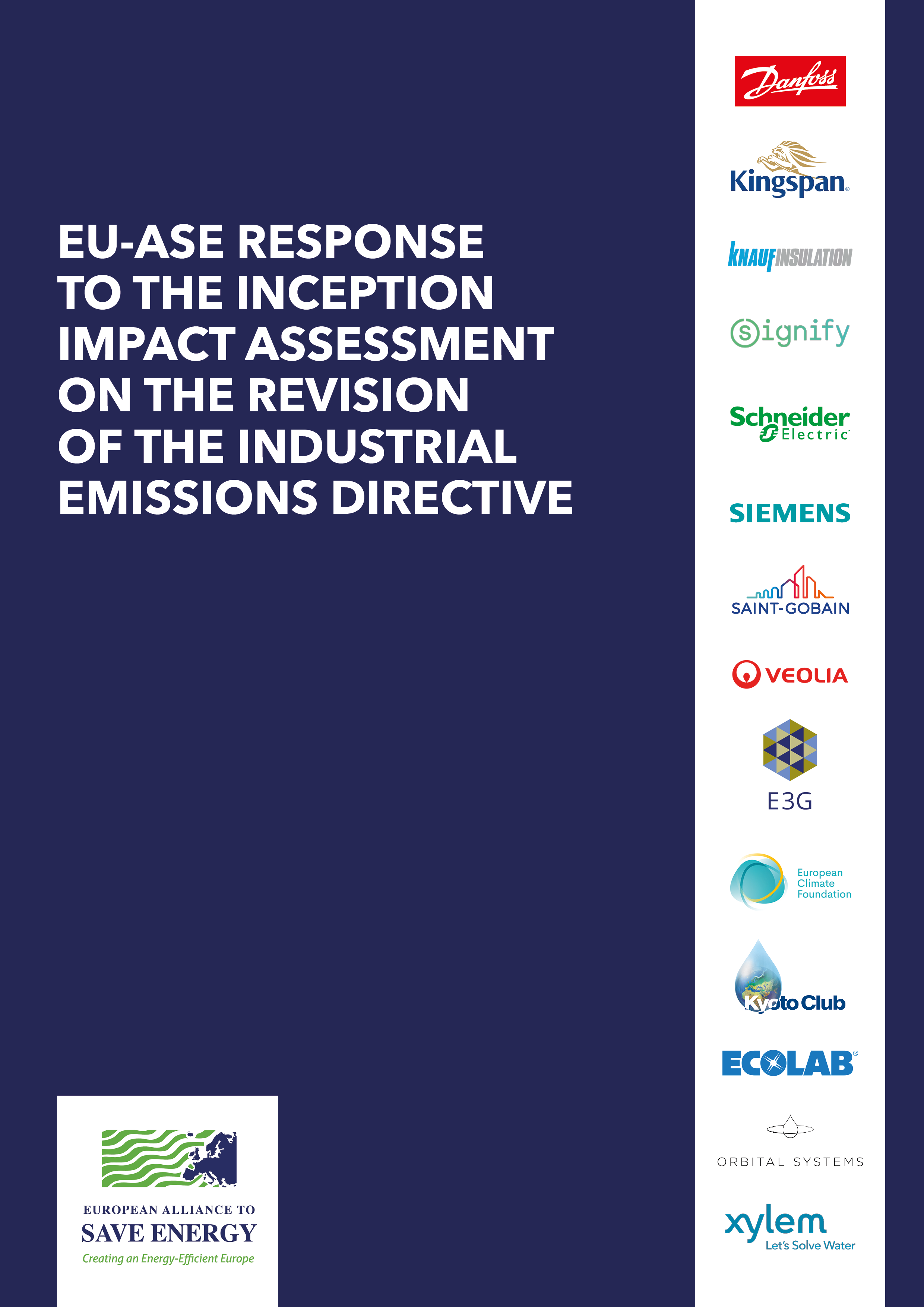
While we believe the Directive has been responsible for solid progress against identified air and water pollutants, and the BREF process has contributed to identifying Best Available Techniques, in its current form the Directive is not able to contribute toward EU ambitions for climate neutrality.
Based on this, EU-ASE would like to highlight the following recommendations to support the Commission in its ongoing work on the IED’s revision.
1. Broadening of the scope
A change in scope is needed so that the IED becomes part of the EU’s arsenal for climate neutrality. The IED should not only look at industrial emissions from a qualitative perspective, instead it should go further and focus on use of resources in industrial manufacturing processes, circular economy and the reuse of resources in to order to have a real impact.
2. Making the Energy Efficiency BREF mandatory for all sectors
There is a general consensus that the Energy Efficiency BREF has not been made a priority focus in the past and needs strengthening of the requirements to reduce energy losses. Its implementation needs to be made mandatory for all sectors, taking into account the Energy Efficiency First principle.
3. Tackling water scarcity and efficiency needs by reducing water consumption
The issue of water scarcity and efficiency needs to be tackled before it becomes a larger, more critical issue for industry. In Europe, more than 50% of fresh water abstraction is for industrial purposes. While we welcome the inclusion of water reuse in the existing BREFs, the reduction of water consumption has clearly not been a key environmental issue addressed by the BREF technical committees as only 20 BAT conclusions (out of 850 in total) have included water usage reductions or increasing water reuse.
4. Focusing on the energy-water nexus
We believe that the IED should give greater priority to water consumption with a focus on reuse under circular economy principles. This should include a focus on water and heat in industrial processes (the “energy-water nexus”) where water efficiency leads to energy savings and emissions reductions.
5. New policy objectives
We would like to see water efficiency and water reuse in industrial processes, waste water minimisation, and the digitisation of water management in industry become policy objectives of the IED.
6. Horizontal BREF on water efficiency and reuse
The Commission could consider developing a horizontal BREF on water efficiency and reuse to mainstream these practices across European industries.
7. Fit for innovation and new technologies
The slow incremental nature of the “available techniques” needs to be addressed to better promote innovation, and BREFs require a mechanism to adapt more quickly to rapidly advancing technologies (there is no backwards compatibility).
8. Encourage behavioral change and incentive mechanism
The Commission should seize this opportunity to encourage behavioural change amongst industry leaders and provide incentive mechanisms to help them realise the different benefits of water and energy efficiency measures (water, energy, emissions and industrial competitiveness).
